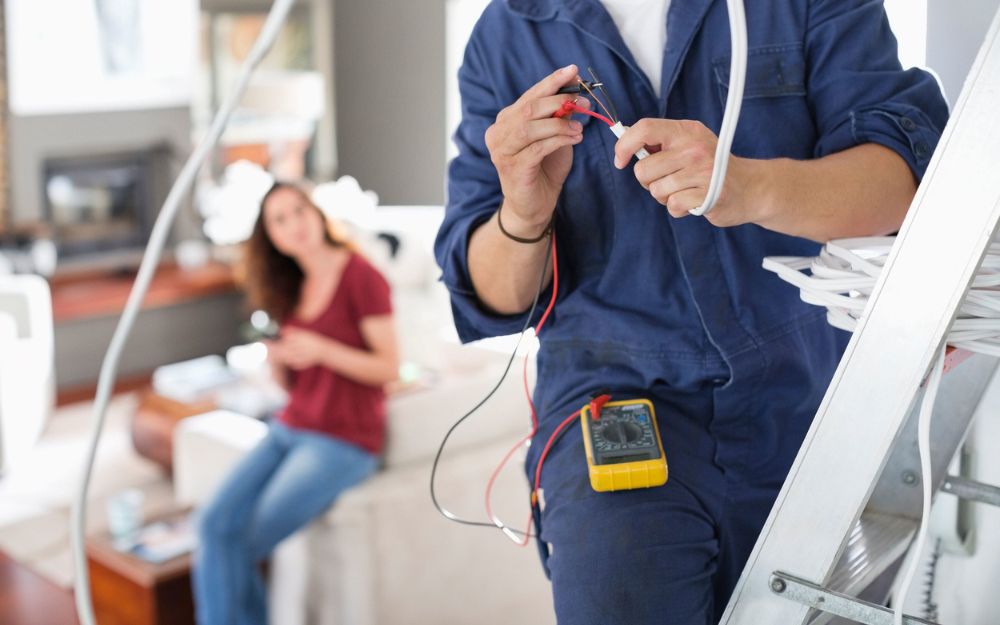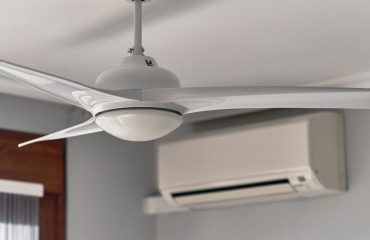Electricity powers nearly every aspect of a home, from lighting and heating to essential appliances. However, to ensure ongoing safety and efficiency, regular electrical maintenance is essential. Electrical maintenance is a set of routine checks, repairs, and preventative measures that keep a home’s electrical systems safe and functioning optimally. Neglecting electrical maintenance can lead to potential hazards and costly repairs, making it an important responsibility for homeowners.
Definition of Electrical Maintenance
Electrical maintenance refers to the routine inspection, repair, and upkeep of a home’s electrical systems and components. It includes identifying and fixing potential problems, replacing worn-out parts, and implementing preventive measures to avoid breakdowns. Common areas covered by electrical maintenance include circuit breakers, wiring, outlets, switches, and other components of the home’s electrical network. By performing these tasks, homeowners can ensure that their electrical systems remain safe and compliant with local regulations.
In a professional maintenance program, licensed electricians use specialised tools and techniques to assess and improve the condition of electrical systems. This level of expertise helps prevent small issues from turning into major problems, promoting safe and efficient electrical operation throughout the home.
Types of Electrical Maintenance Services
Electrical maintenance services cover a broad range of inspections, tests, and repairs, each playing a crucial role in maintaining safety and efficiency. Here are some of the most common types of electrical maintenance:
- Electrical Inspections: Regular inspections are the foundation of any good maintenance plan. Electricians will inspect outlets, switches, and wiring for wear, ensuring that all components meet safety standards. This service typically includes testing safety features like circuit breakers, earth grounding, and surge protection systems.
- Wiring and Circuit Checks: Over time, wiring can deteriorate, leading to increased risk of faults or fire. During a wiring check, electricians assess the condition of all visible and accessible wiring. They also inspect circuits to ensure that they can handle the power load requirements of modern homes.
- Component Replacement: Essential components, such as circuit breakers, fuses, and outlets, can wear out and may need replacement over time. Replacing these components ensures a stable electrical supply and reduces the risk of faults.
- Testing Safety Features: Safety devices such as Residual Current Devices (RCDs) and circuit breakers protect against electrical shock and overload. Testing these components ensures they are responsive and able to cut power in case of a fault.
- Energy Efficiency Assessments: Electricians may also assess energy use to identify areas for potential savings, such as replacing incandescent bulbs with LEDs or advising on the installation of energy-efficient appliances.
By scheduling these services regularly, homeowners can identify problems early, keeping their electrical systems safe and efficient.
Benefits of Regular Electrical Maintenance
Regular electrical maintenance provides multiple advantages, from safety and energy efficiency to long-term cost savings. Here’s a closer look at the benefits:
- Safety: The primary purpose of electrical maintenance is to ensure safety. Fault wiring, damaged outlets, or worm-out circuit breakers can lead to fire hazards or electric shocks. Regular maintenance helps to catch these risks early, ensuring that the home remains safe for residents.
- Prevention of Costly Repairs: Small electrical issues, if left unattended, can escalate into significant problems requiring extensive repairs or replacements. By addressing minor faults during routine maintenance, homeowners can prevent major breakdowns, saving time and money.
- Energy Efficiency: Inefficient electrical systems consume more energy, leading to higher utility bills. Maintenance services, such as replacing outdated wiring or upgrading lighting, can improve energy efficiency and reduce sots. Additionally, electricians can provide advice on energy-saving practices, such as upgrading to efficient appliances or installing timers and dimmer switches.
- Longevity of Electrical Systems: Regular upkeep extends the lifespan of a home’s electrical systems and components, ensuring that circuits, outlets, and wiring remain in good working condition for longer. This contributes to the home’s overall value and reduces the frequency of major repairs.
- Compliance with Electrical Standards: Electrical standards evolve to improve safety and efficiency, and regular maintenance helps ensure that homes comply with current regulations. This is especially important when planning renovations, selling a property, or obtaining insurance, as non-compliance can lead to issues with inspections and approvals.
The benefits of electrical maintenance reinforce the importance of making it a regular part of home upkeep. It promotes a safer environment, supports efficiency energy use, and minimises unexpected costs.
Electrical maintenance is an essential practice for homeowners seeking to keep their property safe, efficient, and compliant with regulations. By understanding what is electrical maintenance and the types of service available, homeowners can make informed decisions to protect their homes and families. Regular inspections, wiring checks, and component replacements all contribute to the safe and efficient functioning of the home’s electrical system.




